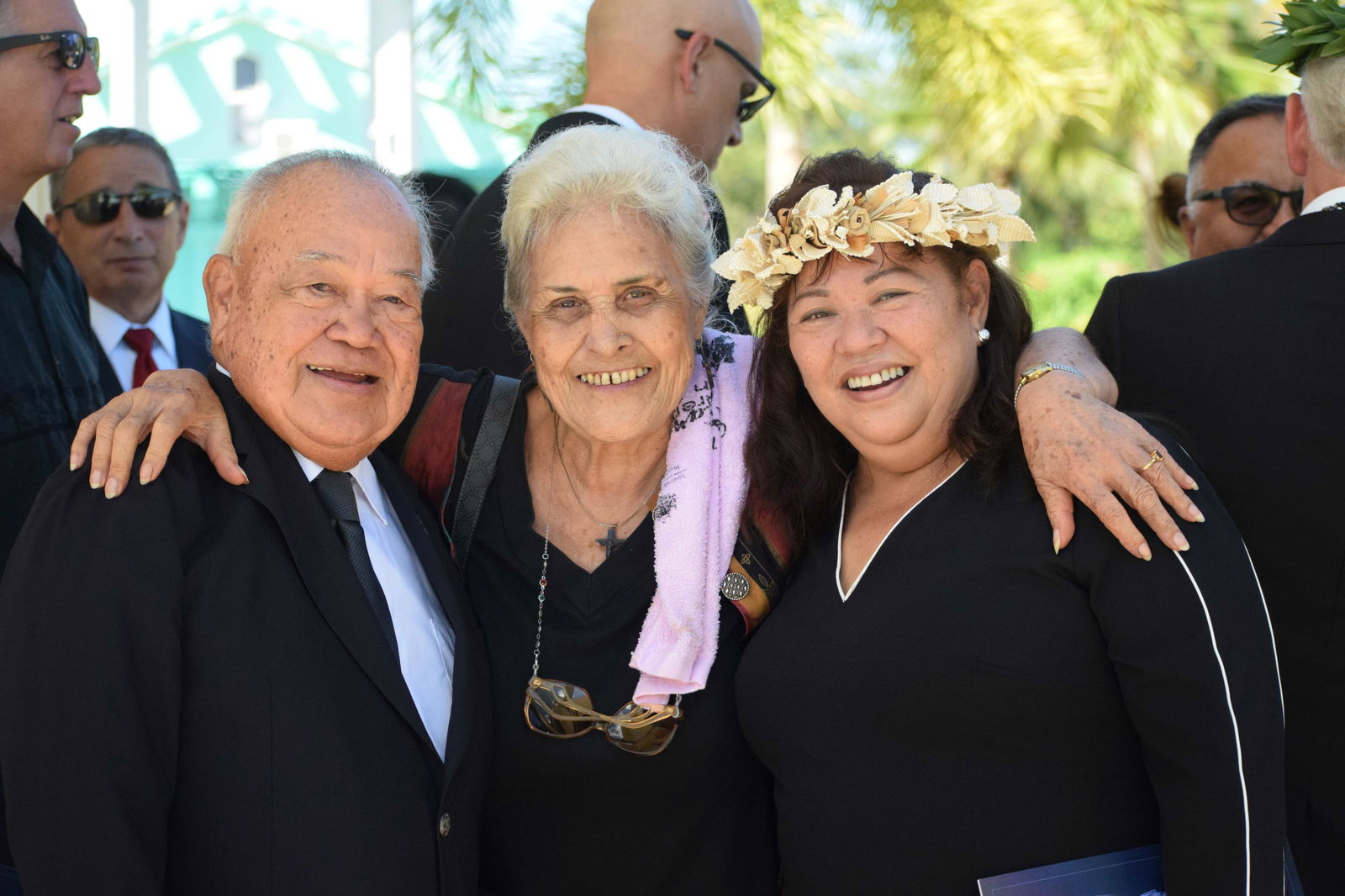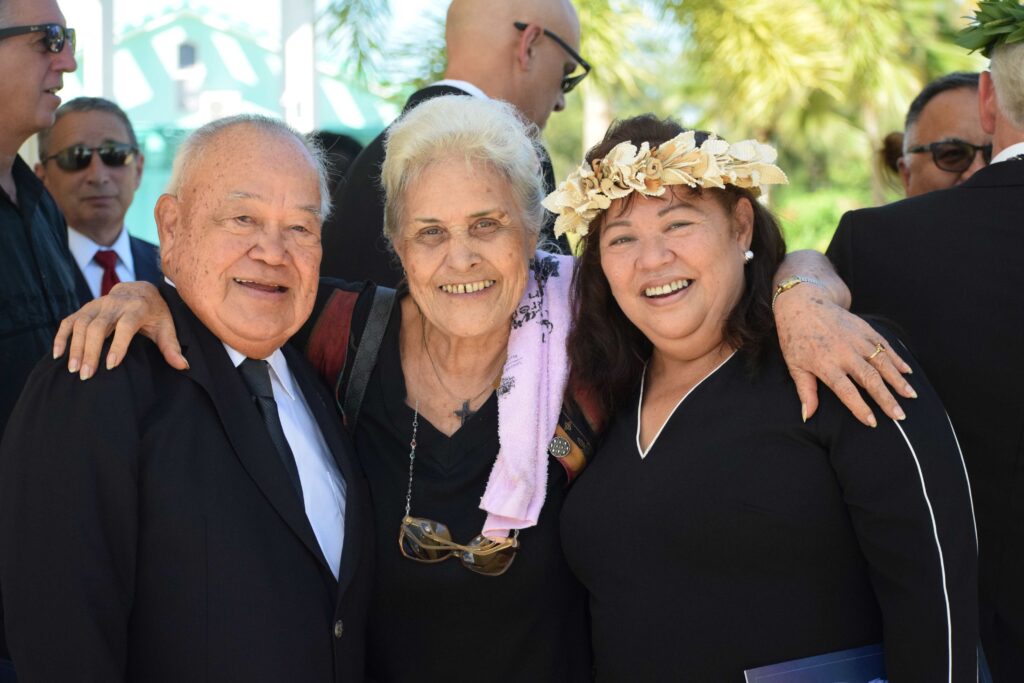
Former Lt. Gov. Pete A. Tenorio, left, poses with Sen. Celina Babauta, right, and Gloria Hunter, former special assistant for programs and legislative review, after the state funeral for the late Gov. Arnold I. Palacios at the multi-purpose center on Saturday.
Photo by Emmanuel T. Erediano
THE ongoing consultation between the CNMI and the U.S. pursuant to Section 902 of the Covenant should focus on the recovery of the Commonwealth’s economy, former Lt. Gov. Pete A. Tenorio said.
One of the CNMI’s founding fathers, Tenorio — who also served as Washington representative — was a member of the Marianas Political Status Commission that negotiated the Covenant with the U.S.
In the most recent 902 talks, which resumed on July 16, 2025, the late Gov. Arnold I. Palacios named Tenorio as one of the core members of the CNMI delegation.
In an interview on Saturday, Tenorio once again extended his sincere thanks to the late Gov. Palacios for appointing him to the NMI panel. He considered it a vital post in the talks, underscoring Palacios’ determination to achieve concrete results.
The most recent 902 talks, Tenorio explained, essentially involve consulting with the U.S. on “problem areas” affecting both governments. He did not elaborate on which specific issues were being discussed but said, “It could be us being affected, or the U.S. being affected.”
He stressed that the process is no longer a negotiation.
“It is consultation. People have got to understand this thing,” Tenorio said.
He said that in the continuation of the 902 talks, his role now is “like an adviser to the group,” referring to the NMI panel.
Asked which particular issues he would like the NMI panel to raise, Tenorio said they need to “beef up” efforts to address the struggling local economy.
“We’re losing a lot of revenues that we used to expect as automatic, but not anymore,” he said.
The Commonwealth, he added, must now work harder to generate revenue — and it must ask the U.S. government for ideas that both sides can work on together to find solutions.
“We need to figure out a way to generate revenue so that we don’t have to be dependent,” he said.
Tenorio said it has long been the CNMI’s desire to become self-sufficient, “to generate our own revenue through our own initiatives.”
However, he emphasized, “We need to ask the U.S. to recognize some of the important areas it should be involved in. And it’s a long process,” he added.
Asked whether he would also bring up issues related to the geopolitical situation, Tenorio said that’s “for the politicians in the U.S. Congress.”
Besides Tenorio, the other members of the CNMI delegation in the 902 talks are Michael Sablan, former CNMI Public Auditor; Wesley M. Bogdan, retired associate judge; and Matt Adams, legal advisor from policy consulting firm Kaplan Kirsch LLP.
On the U.S. side, the core delegation includes William Hague, principal deputy assistant secretary of the Interior for insular and international affairs; Angel Demapan, deputy assistant Interior secretary for insular and international affairs; Justin Rhee, special advisor; Jonathan Dunn, associate director of the Budget Division; and Tim Murphy, senior counselor in the Office of the Solicitor.











